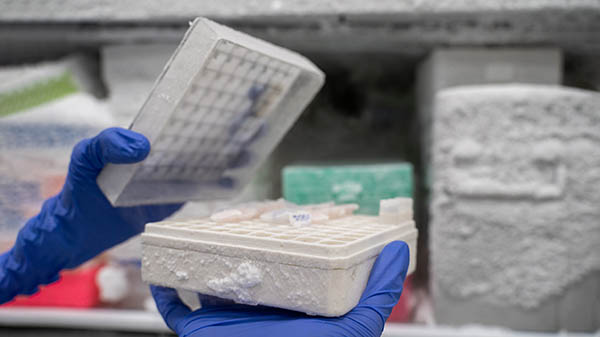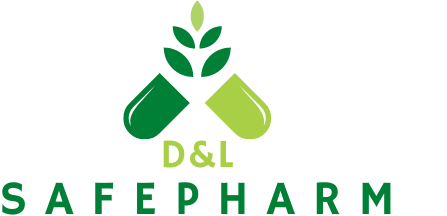
The Wall Street Journal called the IPO the hottest of this year. No, it wasn’t a new artificial intelligence stock or social media site. It was for a company most people have never heard of, but that nevertheless plays an outsize role in what we eat every day.
The IPO was for Lineage, the world’s largest company specializing in maintaining the cold chain for millions of restaurants, grocery stores, and homes. The impressive $4.4 billion it raised highlights the crucial role cold chain logistics play in the global economy.
Cold chain logistics are particularly vulnerable due to their inherently fragile nature. That means mechanical breakdowns (of refrigeration, of vehicles, of other vital equipment), prolonged exposure to heat, and simple human error all have outsized impacts on the risk of damaged goods and ballooning costs.
Nowhere is this more important than the high-value shipments critical for ensuring the quality of life and even the survival of the patients who depend on them: pharmaceuticals.
Cold chain logistics are particularly vulnerable due to their inherently fragile nature. That means mechanical breakdowns (of refrigeration, of vehicles, of other vital equipment), prolonged exposure to heat, and simple human error all have outsized impacts on the risk of damaged goods and ballooning costs.
The fragility of cold chain logistics for pharmaceuticals became all too apparent during the COVID-19 pandemic. As just one example, during the height of the pandemic, a multimillion-dollar order of drugs from my company, Merck, had shipment challenges on its way to China. With global supply chains strained, reproducing the shipment on time seemed impossible.
Fortunately, a new artificial intelligence (AI) tool monitored the shipment’s journey and made en-route adjustments, ensuring a timely and safe delivery. It also highlighted the benefits and necessity of continued technology innovation in this space.
The importance of cold chain integrity
According to market research firm RootsAnalysis, the pharmaceutical cold chain market is projected to grow from $5.3 billion in 2023 to $9.6 billion by 2035. This growth is fueled by the increasing need for precise temperature control for storing and transporting temperature-sensitive drugs.
Today, more than 85% of biologics require cold storage, often in cryogenic conditions sustained by liquid nitrogen. The demand for temperature-sensitive medications such as insulin underscores the necessity for reliable cold chain logistics. These medications can quickly degrade or lose effectiveness if not maintained at optimal temperatures.
Cold chain logistics, including for pharmaceuticals, also come with significant regulatory and legal considerations. For example, every jurisdiction and port has its own regulations governing the transport of perishable goods.
As regulations for greenhouse gas emissions expand, shippers must account not just for transportation emissions but also for emissions associated with refrigeration equipment. It’s one reason Merck looks to send as much freight by ship overseas as possible.
Besides incurring the risk of fines, deviations from regulations can significantly impact product quality and put consumers and patients at risk. Technological innovation matters.
Emerging technologies
Leading the charge in cold chain innovation are virtual “control towers.” These digital systems leverage AI and predictive analytics to create digital twins of pharmaceuticals and their components throughout the supply chain. This technology allows managers to track the exact location and condition of their shipments in real time, including details such as whether a package has been opened or its internal temperature.
As regulations for greenhouse gas emissions expand, shippers must account not just for transportation emissions but also for emissions associated with refrigeration equipment. It’s one reason Merck looks to send as much freight by ship overseas as possible.
To support these control towers, internet of things (IoT) monitoring devices—such as RFID, cellular, and satellite-enabled tags—provide essential data. While ocean freight is more cost-effective and environmentally friendly than air transport, it presents challenges for temperature-sensitive products. However, smart packaging solutions such as temperature-adjusting materials that keep goods cold without external power are already available.
As these technologies evolve, they will create a beneficial cycle: increased use of cold chain solutions will drive further advancements, enabling applications beyond pharmaceuticals, such as the transportation of gourmet foods.
Advancing cold chain technologies
The company Lineage is about far more than the refrigerated real estate that forms its backbone. Also vital to its operations are technologies such as warehouse robotics, smart software that optimizes transportation, sensors making sure goods stay cold, and more.
Americold, another temperature-controlled warehousing and logistics company, also relies heavily on information technology, for example, to keep eyes on goods in transit. United States Cold Storage is justifiably proud of the automation handling 26,000 pallets and reducing manual labor in its Minooka, Illinois, warehouse. And EMBALL’ISO develops innovative phase change materials for its packaging systems that absorb heat to keep pharmaceuticals cold, from a single vaccine vial to entire shipping pallets.
These days, logistics companies are also technology companies.
In my role as managing director of the $600 million Merck Global Health Innovation Fund (MGHIF), I have the privilege of witnessing the birth of new cold chain technologies and, even better, helping them gain traction.
For instance, our portfolio company, TransVoyant, provided the AI-powered supply chain tracking system that saved our critical shipment mentioned above during the pandemic. This technology represents the foundational layer of a robust cold chain, making it a key focus of our investments.
Another portfolio company, CargoSense, enhances cold chain resilience with AI-driven predictions about shipments before they leave the distribution center. It provides recommendations based on various data sources, helping prevent potential issues.
The pharmaceutical industry must advance its cold chain technologies to match the growing demand for temperature-sensitive treatments. The innovations on the horizon promise to transform the sector, offering exciting opportunities for growth and involvement for both customers and suppliers, with lifesaving benefits for potentially billions of people.
AeroSafe Global provides shipping boxes designed to maintain internal temperatures without the need for refrigeration. Although I was initially skeptical, my investment in the company was solidified when they sent me a box containing ice cream bars. Remarkably, the bars stayed perfectly frozen throughout a four-day trip, proving the effectiveness of the technology.
Partnering with AeroSafe Global, Tag-N-Trac offers real-time shipment visibility through cutting-edge Bluetooth and cellular trackers. This portfolio company represents a major leap forward in intelligent labeling technology, a development of substantial importance.
Looking to the future
In the next five years, we anticipate digital package labels that use satellite communication to provide global tracking, even in remote areas. These labels will also facilitate the return of reusable packaging.
Future shipping boxes will feature active cooling systems powered by wireless charging, and AI will continue to enhance its predictive capabilities for shipment routing and delivery timing.
The pharmaceutical industry must advance its cold chain technologies to match the growing demand for temperature-sensitive treatments. The innovations on the horizon promise to transform the sector, offering exciting opportunities for growth and involvement for both customers and suppliers, with lifesaving benefits for potentially billions of people.
About the Author
Joe Volpe is a founding partner and the managing director of the Merck Global Health Innovation Fund (GHIF), a growth investment firm established in 2010, and vice president of the Merck Global Health Innovation Group. GHIF collaborates with pioneering digital health and data science companies to enhance and streamline biopharmaceutical operations with the aim of improving patient care. At GHIF, Volpe leads the firm’s investments in supply chain, manufacturing, and information technology (IT). With extensive expertise in corporate development, corporate finance, mergers and acquisitions, start-ups, and acquisition integration, he brings more than 25 years of investment experience to his role. Prior to joining Merck, he held innovation and investment positions at Johnson & Johnson.
